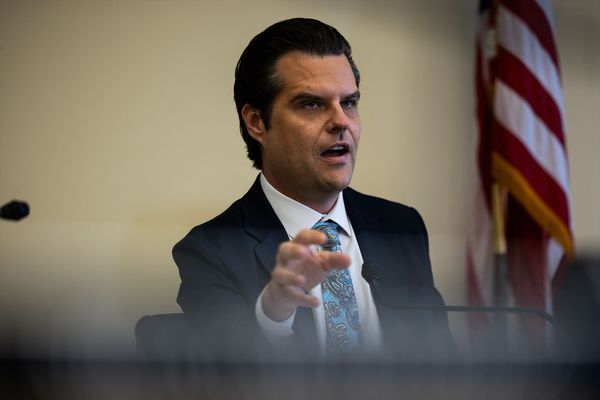
Washington (AFP) - US banks will be paying especially close attention to the Federal Reserve's interest-rate decision on Wednesday after two weeks of market turmoil over the collapse of three regional lenders.
The US central bank is walking a tightrope between continuing to raise rates to combat high inflation and stepping on the brake to prevent further upheaval in the commercial banking sector.
A stock market rally earlier this week solidified calls by most analysts that the Fed will hike interest rates again, despite wider concerns about the financial sector.
The majority of futures traders predict the Fed will increase its benchmark lending rate by 25 basis points to a range of 4.75-5.00 percent, according to CME Group.
That would be in line with the size of the central bank's previous rate hike in February, and mark the ninth increase since it began tightening monetary conditions last year.
Despite these efforts, price rises remained stuck well above the Fed's long-term inflation target of two percent.
Hot data and banking uncertainty
The implosions of Silicon Valley Bank (SVB) and two other regional lenders pummeled banking stocks around the world last week, with Credit Suisse swallowed up by Swiss rival UBS after its shares sank to a record low.
Asian stock markets and most European indices rose ahead of the Fed's decision on Wednesday.But British inflation rose unexpectedly last month despite a concerted effort by the Bank of England to tackle rising prices.
Wall Street stocks opened nearly flat on Wednesday as investors await the Fed's decision.
US regional banks opened lower before paring some losses.Embattled First Republic Bank was down around two percent 30 minutes into trading, while PacWest Bancorp was down nearly four percent.
The combination of hot US economic data at the start of the year and uncertainty in the banking sector has led most analysts to predict the Fed will continue with a more modest hiking cycle than was previously predicted.
"After the recent news, the recent developments in the financial markets, we now see a kind of risk to both sides," Stephen Juneau, senior US economist at Bank of America Global Research, told AFP.
"We're still looking for a 25 basis point hike in March, May, and June," he said.
More 'dovish' language
Treasury Secretary Janet Yellen said Tuesday that the US banking sector was "stabilizing" after authorities stepped in to protect deposits following the failures of SVB and Signature Bank.
But she conceded that "similar actions could be warranted if smaller institutions suffer deposit runs that pose the risk of contagion."
Yellen's comments contributed to this week's relief rally in the stock markets, along with actions by the Fed and other major central banks to improve lenders' access to liquidity.
The challenge on Wednesday for Fed Chair Jerome Powell will be to convey the message that the banking system has turned a corner while continuing to confront inflation.
"The Fed will need to emphasize that it has a dual mandate of full employment and stable prices, with the latter nowhere close to being met," Oxford Economics' chief US economist Ryan Sweet wrote in a note to clients.
It is likely to be "a bit more dovish" in the language that accompanies the decision, Juneau from Bank of America said, adding he expects the US central bank to reinforce its confidence in the banking system in the statement.
The Fed will also update its GDP growth and interest-rate projections on Wednesday.
Its announcement will follow on the heels of the European Central Bank's decision last week to raise rates by 0.5 percentage points.
ECB chief Christine Lagarde warned on Wednesday that the eurozone's monetary policymakers "will still have ground to cover to make sure that inflation pressures are stamped out."
She said the recent banking turmoil could add to "downside risks" in the single currency area.







